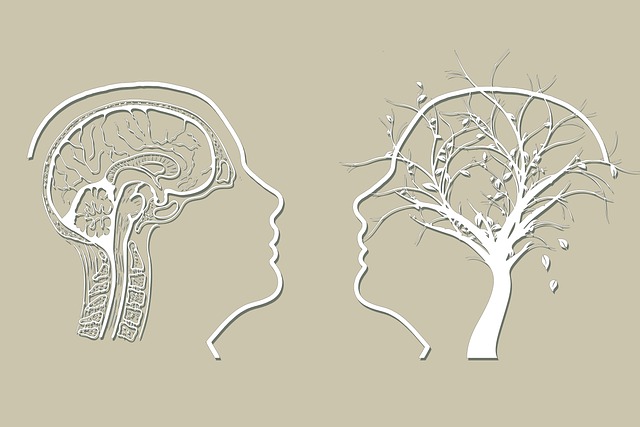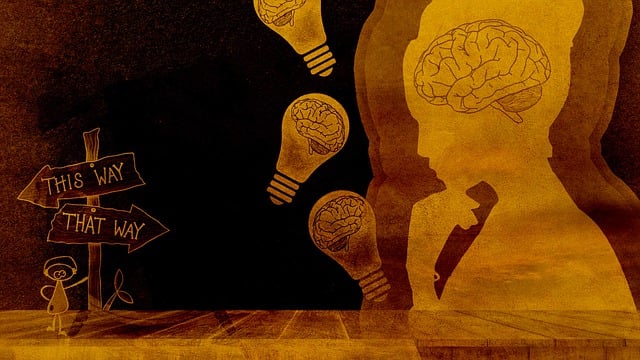Greenwood Village Crisis Counseling Therapy emphasizes emotional intelligence (EI) as a core component of mental health care. Their innovative approach combines mindfulness, emotion management, and resilience-building techniques to empower clients with effective coping strategies. Beyond traditional therapy, they offer risk management planning for professionals, teaching them to recognize and respond to emotional triggers. This holistic process enhances clients' independence in managing emotions, fostering long-lasting empowerment. High emotional intelligence strengthens relationships and leadership skills, making it invaluable in both personal and professional settings. Greenwood Village's expertise in EI development, including active listening and mindfulness practices, contributes to improved mental wellness and resilience in navigating life's challenges.
Emotional intelligence (EI) is a powerful tool for navigating life’s challenges, whether it’s managing personal stress or fostering meaningful connections. This article explores EI from the perspective of Greenwood Village Crisis Counseling Therapy, delving into its core components and impact. We’ll uncover why EI matters in both daily life and careers, providing practical strategies for recognizing and managing emotions, empathizing with others, and building resilience. By understanding these concepts, you can enhance your emotional well-being and relationships.
- Understanding Emotional Intelligence: The Greenwood Village Crisis Counseling Perspective
- Why Emotional Intelligence Matters in Everyday Life and Career
- Recognizing and Managing Your Own Emotions
- Empathizing with Others: Listening Beyond the Words
- Building Resilience Through Emotional Intelligence Techniques
Understanding Emotional Intelligence: The Greenwood Village Crisis Counseling Perspective

Emotional intelligence (EI) is a crucial aspect of human interaction and well-being, and it’s at the core of Greenwood Village Crisis Counseling Therapy’s approach to mental health care. This perspective emphasizes understanding and managing emotions effectively, which can lead to enhanced resilience building among individuals. By incorporating mind over matter principles, crisis counselors help clients develop coping strategies that empower them to navigate challenging situations with greater ease.
Greenwood Village’s unique approach goes beyond traditional therapy by focusing on risk management planning for mental health professionals as well. This involves equipping individuals with the skills to recognize and respond to emotional triggers, thereby reducing the impact of stressors. Through this holistic process, clients are not just treated; they learn to manage their emotions independently, fostering a sense of empowerment that extends far beyond the counseling room.
Why Emotional Intelligence Matters in Everyday Life and Career

Emotional intelligence (EQ) is a powerful tool that significantly impacts both personal and professional life. In everyday interactions, high EQ fosters better relationships by enhancing empathy, understanding, and effective communication. This ability to recognize and manage emotions, both one’s own and others’, promotes healthier social connections and can prevent conflicts from escalating. For instance, in a community like Greenwood Village, where crisis counseling therapy is accessible, individuals with strong emotional intelligence are better equipped to navigate challenging situations, offering support not just to themselves but also to their neighbors.
In careers, emotional intelligence is equally vital. Leaders with high EQ create more positive and productive work environments. They can motivate and inspire their teams, resolve conflicts, and make decisions that consider the emotional well-being of employees. This is especially relevant in healthcare, where Burnout Prevention Strategies for Healthcare Providers emphasize the importance of self-care and effective coping mechanisms. Crisis intervention guidance and communication strategies are crucial aspects of emotional intelligence, enabling professionals to provide excellent patient care and maintain healthy work-life balance.
Recognizing and Managing Your Own Emotions

Recognizing and managing your own emotions is a fundamental aspect of emotional intelligence building. It involves understanding what you’re feeling in any given moment and why. This self-awareness allows you to make sense of your experiences, interpret them accurately, and respond appropriately. By developing this skill, you can avoid reacting impulsively or lashing out when faced with challenging situations—a practice that could benefit from Greenwood Village Crisis Counseling Therapy for support.
Moreover, managing your emotions effectively involves regulating them in a healthy way. This includes recognizing triggers, understanding your emotional responses, and finding constructive outlets for intense feelings. Techniques like mindfulness meditation, deep breathing exercises, and journaling can all aid in this process. Incorporating these practices into your daily routine—even as part of a Mental Wellness Podcast Series Production or through Burnout Prevention strategies—can significantly enhance your emotional intelligence and overall mental wellness. Social Skills Training can also play a crucial role in learning to express emotions effectively and build stronger connections with others.
Empathizing with Others: Listening Beyond the Words

In the realm of emotional intelligence building, empathizing with others is a cornerstone. It goes beyond simply understanding words; it involves tuning into the emotions that lie beneath them. At Greenwood Village Crisis Counseling Therapy, we emphasize the importance of active listening as a key Mind Over Matter principle for fostering meaningful connections and promoting mental wellness. By truly hearing what’s being expressed—not just the words but also the nuances and sentiments—individuals can build stronger relationships and enhance their Emotional Well-being Promotion Techniques.
This deep listening requires patience, presence, and an open mind. It encourages individuals to acknowledge and validate others’ feelings, even when they differ from or challenge one’s own perspectives. This ability not only strengthens interpersonal dynamics but also fosters a culture of care and understanding in the community, reflecting the core values of Greenwood Village Crisis Counseling Therapy.
Building Resilience Through Emotional Intelligence Techniques

Emotional intelligence (EI) is a powerful tool for building resilience, especially in navigating the complexities of modern life. Techniques like mindfulness and emotional awareness, often offered through Greenwood Village Crisis Counseling Therapy, equip individuals with the skills to recognize and manage their emotions effectively. By fostering self-regulation, people can better cope with stressful situations, reducing the impact of adverse events on their mental well-being. This proactive approach is crucial in promoting long-term mental health, especially for healthcare providers who often face high-pressure environments.
Moreover, integrating EI practices into therapy and counseling sessions enhances the therapeutic process. It allows professionals to connect more deeply with clients, understanding their emotional needs better. This connection forms the foundation for successful risk assessment and management, a critical aspect of mental health care. The ability to assess and mitigate risks in a culturally competent manner, as highlighted in Healthcare Provider Cultural Competency Training, is further enhanced through EI, ensuring that each client receives personalized, effective support.
Emotional intelligence, as viewed through the lens of Greenwood Village Crisis Counseling Therapy, is a powerful tool for personal growth and successful relationships. By understanding, managing, and empathizing with emotions, individuals can navigate life’s challenges more effectively. This article has explored various aspects of emotional intelligence, from recognizing one’s own feelings to fostering empathy towards others. Through these practices, we can build resilience and enhance our interactions in both personal and professional settings, ultimately leading to a more fulfilling and balanced life.














